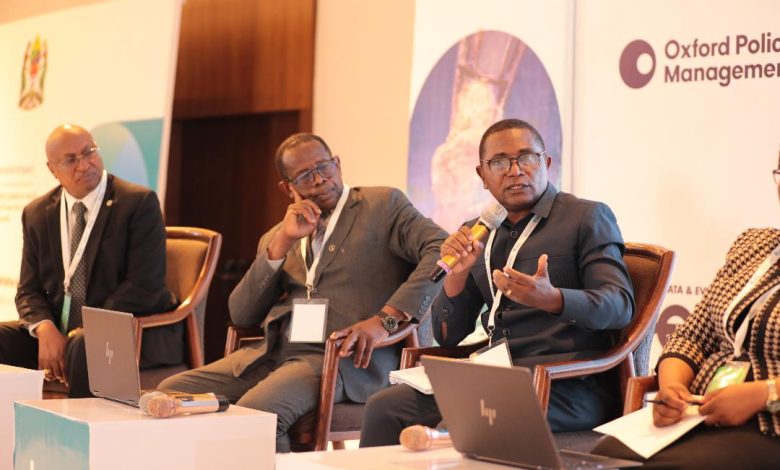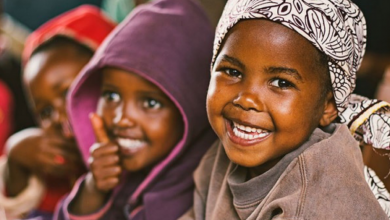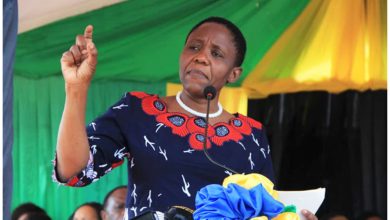Tanzania re-energizes fight against poverty with TASAF at the helm

DAR ES SALAAM: When former President Jakaya Kikwete took the podium in Arusha yesterday at the International Conference on “Re-energizing the Race to 2030,” he did not mince words. His words were not just a call to action, they were a rallying cry to turbocharge the fight against poverty with data, evidence, and bold action. And at the forefront of this battle stood the Tanzania Social Action Fund (TASAF), the nation’s unsung hero in the war against poverty.
The TASAF Legacy: From vision to impact
TASAF was not born overnight. It was conceived under the leadership of Dr Kikwete during his tenure as the fourth president of Tanzania (2005–2015). Recognizing that economic growth alone wouldn’t suffice to lift the most vulnerable, he championed the establishment of TASAF as a social safety net aimed at directly supporting impoverished households.
But TASAF is more than just a financial lifeline. It embodies a shift in Tanzania’s approach to poverty alleviation, moving from mere economic growth to inclusive development that ensures no one is left behind. As Dr Kikwete aptly put it, “TASAF is more than just cash transfers. It is a lifeline that helps vulnerable families survive shocks, access education, and improve livelihoods.”
Here, one of the standout features of TASAF’s approach is its emphasis on data. Dr Kikwete highlighted the importance of accurate, timely, and disaggregated data in crafting effective policies. Without it, there’s a risk of overlooking those who need help the most.
Tanzania has embraced modern tools like big data analytics, machine learning, and real-time monitoring to refine how poverty is measured and addressed. This means TASAF can better identify extreme poverty pockets and tailor interventions precisely. It’s like using a GPS to navigate the complex terrain of poverty and that is ensuring resources reach the right destinations.
Tackling the Roots: Beyond income to opportunity
Dr Kikwete reminded the audience that poverty is a multifaceted issue. It is not just about income; it is about access, dignity, and opportunity. To truly combat poverty, one must address its root causes mostly in economic exclusion, social inequality, and systemic barriers.
TASAF’s future, he suggested, should be part of a broader, people-centered social protection system that integrates education, health services, and economic empowerment. This holistic approach is crucial if Tanzania is to break the cycle of poverty for good.
Partnerships: The wind beneath TASAF’s wings
No programme can succeed in isolation. TASAF thrives because of its partnerships with government agencies, local communities, development partners, and civil society. These collaborations have been instrumental in expanding TASAF’s reach and effectiveness.
Dr. Kikwete emphasized that ending poverty requires not only national commitment but also regional and global cooperation. The conference itself was a testament to this spirit, bringing together experts, policymakers, academics, and donors to share ideas and strategies.
ALSO READ: Over 11bn/- disbursed to TASAF beneficiaries
The TASAF Impact: Real stories, real change
The impact of TASAF is not just theoretical; it is tangible and measurable. For instance, in Simiyu Region, beneficiaries have received a total of 7.3bn/-. The programme has stimulated income-generating activities like agriculture and livestock-keeping. In 329 villages, 37,880 households have benefited from Conditional Cash Transfers, and 5,118 households have participated in the Public Works Programme. Additionally, 50,661 children from enrolled poor households are benefiting from health and education services through TASAF.
These numbers are more than just statistics; they represent real lives transformed. They are the stories of children attending school for the first time, families accessing healthcare, and communities building infrastructure that will serve them for generations.
At the helm of TASAF is Shedrack Mziray, the Chief Executive Officer, whose leadership continues to inspire confidence in the organization’s mission. In his address at the conference, Mziray underscored TASAF’s pivotal role in the nation’s pursuit of Sustainable Development Goal 1: No Poverty.
He began by emphasizing the urgency of the moment. “With only five years remaining to meet the 2030 target,” he remarked, “we must accelerate our efforts to eradicate poverty.”
He acknowledged the multifaceted challenges that have hindered progress, including the global COVID-19 pandemic, economic disruptions, and climate-related disasters. Despite these setbacks, Mziray expressed confidence in Tanzania’s resilience and the effectiveness of its social protection programs.
Central to his message was the transformative impact of TASAF’s initiatives. He pointed to the Productive Social Safety Net (PSSN) program as a cornerstone of the country’s poverty alleviation strategy. “Through PSSN, we have not only provided financial support but have also empowered communities to build sustainable livelihoods,” Mziray stated.
He also addressed the importance of data and evidence-based decision-making. “Accurate data is crucial for identifying the most vulnerable populations and tailoring interventions to their specific needs,” he noted.
He announced that TASAF is collaborating with the National Bureau of Statistics and other partners to conduct comprehensive assessments of the PSSN’s impact. These evaluations aim to refine strategies and ensure that resources are allocated efficiently.
In his concluding remarks, Mziray called for strengthened partnerships across all sectors. “Ending poverty is a collective responsibility,” he asserted. “By working together namely the government, civil society, the private sector, and international partners, we can create a Tanzania where no one is left behind.”
Mziray’s address was met with resounding applause, reflecting the shared commitment to a poverty-free future. His leadership continues to inspire confidence in TASAF’s mission and its critical role in Tanzania’s development trajectory.
As Tanzania races toward the 2030 deadline, the journey is far from over. The challenges are significant, but the resolve is stronger. TASAF is set to expand and innovate further. Its mission is clear: to reach every vulnerable household, offer more than just financial aid, and empower Tanzanians to build sustainable livelihoods.
The upcoming evaluation of PSSN II will be instrumental in securing future funding and identifying areas needing attention. Initial assessments revealed over 395,000 households ready to exit the program, marking significant progress. However, the journey doesn’t end there. Continuous monitoring, adaptation, and collaboration are essential to ensure that no one is left behind.
The fight against poverty is not a solitary endeavor. It requires the collective efforts of individuals, communities, governments, and international partners. With programs like TASAF, grounded in data and backed by political will and partnerships, Tanzania is on a path to make poverty history.
As Dr Kikwete aptly quoted Nelson Mandela during the conference: “Overcoming poverty is not a gesture of charity, it is an act of justice.” Poverty, like slavery and apartheid, is man-made and can be eradicated.
Tanzania’s journey shows it’s possible. With leaders like Dr Kikwete and Mziray championing data-driven social protection, supported by committed partners, ending poverty is not just a dream, it is an achievable goal. And as the sun sets over the Serengeti, one can hope that the race to 2030 will be remembered not just for the challenges faced, but for the victories won in the name of dignity, opportunity, and justice for all.





